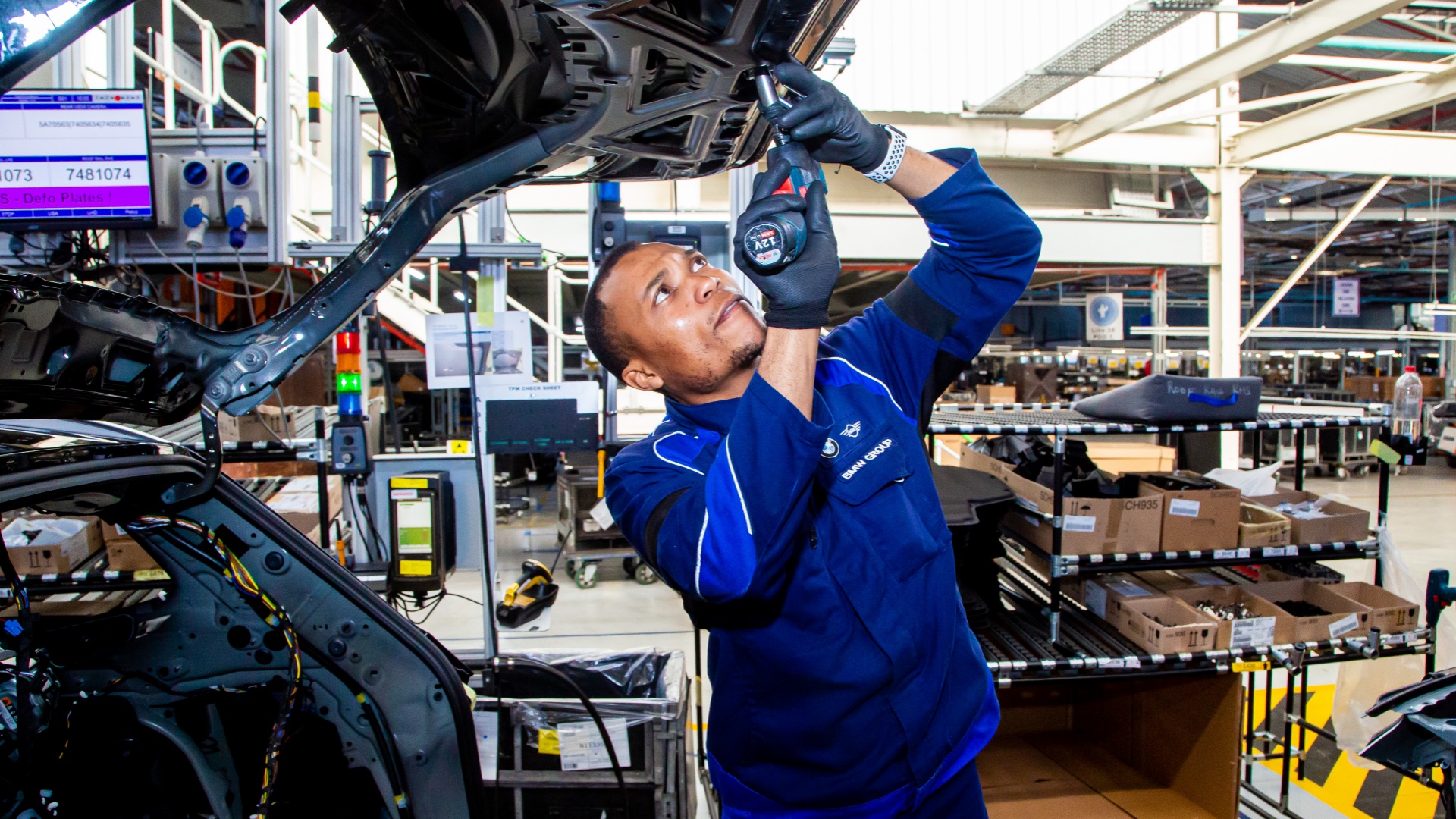- The Presidency has highlighted the importance of incentivising manufacturers to invest in the production of EVs locally.
- Ramaphosa used BMW’s recent investment of R4.2 billion to equip its Rosslyn Plant in Tshwane as an example.
- The drive is part of a larger decarbonisation movement that government wants to leverage.
Much has been made of the push for sustainability, green energy, decarbonisation, and vehicle electrification in recent years, and now the South African government wants to see how many more car makers can be courted in order to manufacture EVs in SA.
This according to the latest weekly op-ed from the Presidency, in which Cyril Ramaphosa detailed the need for increased investment from vehicle manufacturers and the requirement for government to make local economic conditions more attractive in order to do so.
Ramaphosa specifically highlighted the recent announcement from BMW, which is investing R4.2 billion in order to equip its Rosslyn Plant in Tshwane to build the next generation BMW X3 plug-in hybrid.
“Among other things, this means that auto manufacturers need to be supported to expand their investment in the production of new energy vehicles in South Africa. We currently have a range of measures to support automotive manufacturers, such as the Special Economic Zone incentives, the Automotive Investment Scheme and others,” explained Ramaphosa.
To that end, he and the South African government are hoping that other car makers view South Africa as an opportunity to add EV manufacture as an option to their current output.
“We will soon be finalising a strategy to support the transition to electric vehicle manufacturing that is affordable and effective. It is key that South Africa keeps up with other countries, including on the continent, that are incentivising the manufacture and uptake of electric vehicles as the world moves towards decarbonisation,” he added.
The president continued by noting how many companies have taken a negative view of countries where decarbonisation is not a top priority, especially in the motoring industry.
“This is particularly important as many of our export markets are increasingly seeking to reduce the negative environmental impact of the goods they produce and import. The European Union, for example, has decided to ban the sale of new petrol and diesel-powered motor vehicles from 2035,” he wrote.
“This has significant implications for South Africa since Europe accounts for about 60% of our motor vehicle exports. This presents both a threat to our auto industry, which mainly produces petrol and diesel vehicles, and an enormous opportunity,” Ramaphosa continued.
While it remains to be seen whether the desired incentives and special economic zones can materialise, it is clear that more needs to be done in order to court car makers into manufacturing EVs in South Africa.
With the nation’s ailing power utility and a distinct lack of EV charging infrastructure exacerbating matters, there are still multiple elements that need to be addressed if this long-term project is to be realised.
“Whether it is in the auto industry, energy or other economic sectors, we are confident that our country is taking the necessary steps towards a low-carbon future that leaves no-one behind,” he concluded.

